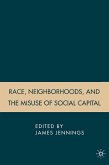This is an open access book.
Modern society is characterized by the fact of contingency, uncertainty, and ambiguity. The purpose of this book is to transform this phenomenal fact into a hopeful norm. As a clue, the book examines the concept of dignity and looks forward to a new definition.
So far, the concept of dignity has been peripheral to the concerns of liberal social sciences. This book uses the concept of dignity as a source of light to illuminate the fundamental critique of liberal social sciences and philosophy. Can the theory of justice or discourse ethics truly realize the well-defined society it envisions in a fundamentally contingent, uncertain, and ambiguous situation? Can societies be inclusive of minorities relegated to the periphery with their dignity undermined? Can we resist the temptation to construct huge hierarchical stairs, forcing individuals to place themselves on one of its steps, and thus lining up different and diverse entities in along sequence, and eventually bringing about totalitarianism?
This book has a three-level telescopic structure. At the very front, there is a scope of reexaming the political liberalism in the light of dignity. Behind it is a scope of reconstructing a theory of justice in modern society. Further behind it, there is a scope encompassing reflection on the methodology of liberal social sciences and philosophy. We leave it to the reader's imagination as to which scope to read this book through, and what image will emerge from the three scopes taken together. It is our hope that this book helps readers envision as a "realistic utopia" a society in which "no one is left behind," including wounded little birds.
Hinweis: Dieser Artikel kann nur an eine deutsche Lieferadresse ausgeliefert werden.
Modern society is characterized by the fact of contingency, uncertainty, and ambiguity. The purpose of this book is to transform this phenomenal fact into a hopeful norm. As a clue, the book examines the concept of dignity and looks forward to a new definition.
So far, the concept of dignity has been peripheral to the concerns of liberal social sciences. This book uses the concept of dignity as a source of light to illuminate the fundamental critique of liberal social sciences and philosophy. Can the theory of justice or discourse ethics truly realize the well-defined society it envisions in a fundamentally contingent, uncertain, and ambiguous situation? Can societies be inclusive of minorities relegated to the periphery with their dignity undermined? Can we resist the temptation to construct huge hierarchical stairs, forcing individuals to place themselves on one of its steps, and thus lining up different and diverse entities in along sequence, and eventually bringing about totalitarianism?
This book has a three-level telescopic structure. At the very front, there is a scope of reexaming the political liberalism in the light of dignity. Behind it is a scope of reconstructing a theory of justice in modern society. Further behind it, there is a scope encompassing reflection on the methodology of liberal social sciences and philosophy. We leave it to the reader's imagination as to which scope to read this book through, and what image will emerge from the three scopes taken together. It is our hope that this book helps readers envision as a "realistic utopia" a society in which "no one is left behind," including wounded little birds.
Hinweis: Dieser Artikel kann nur an eine deutsche Lieferadresse ausgeliefert werden.








